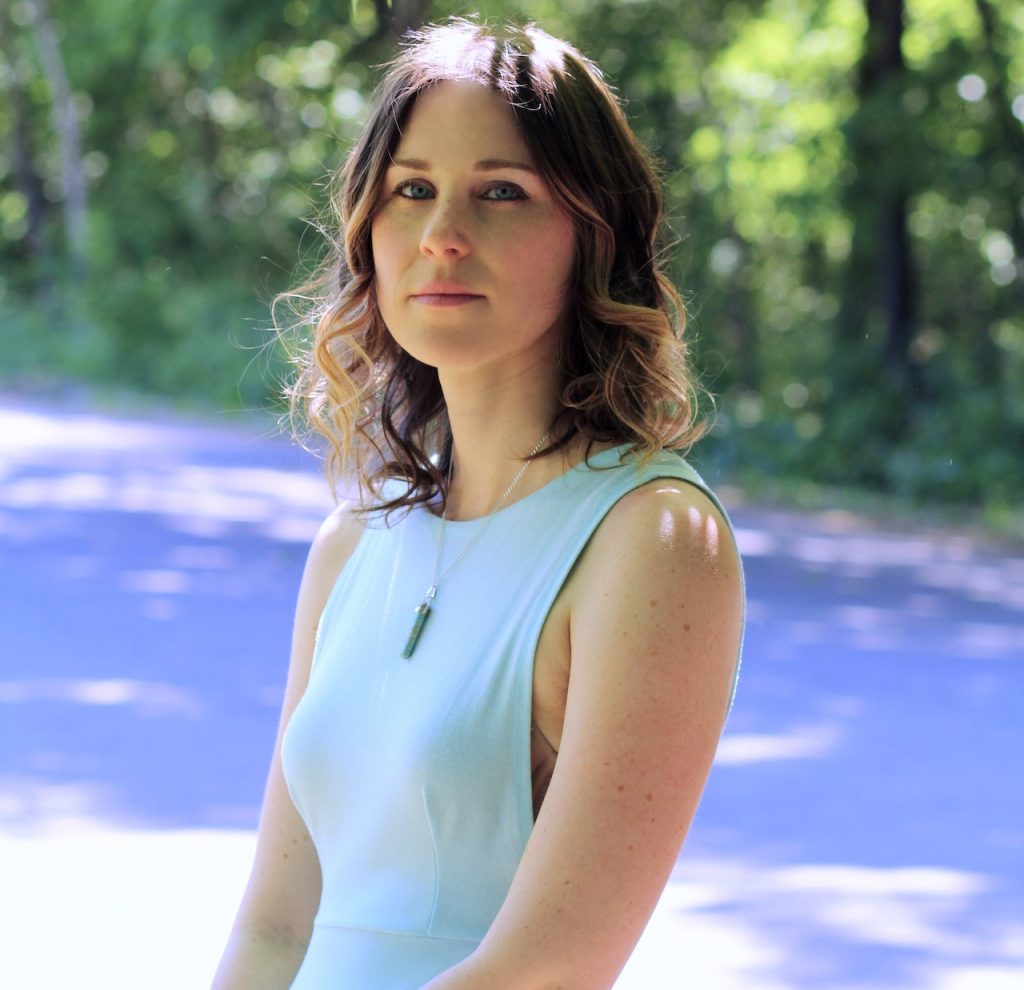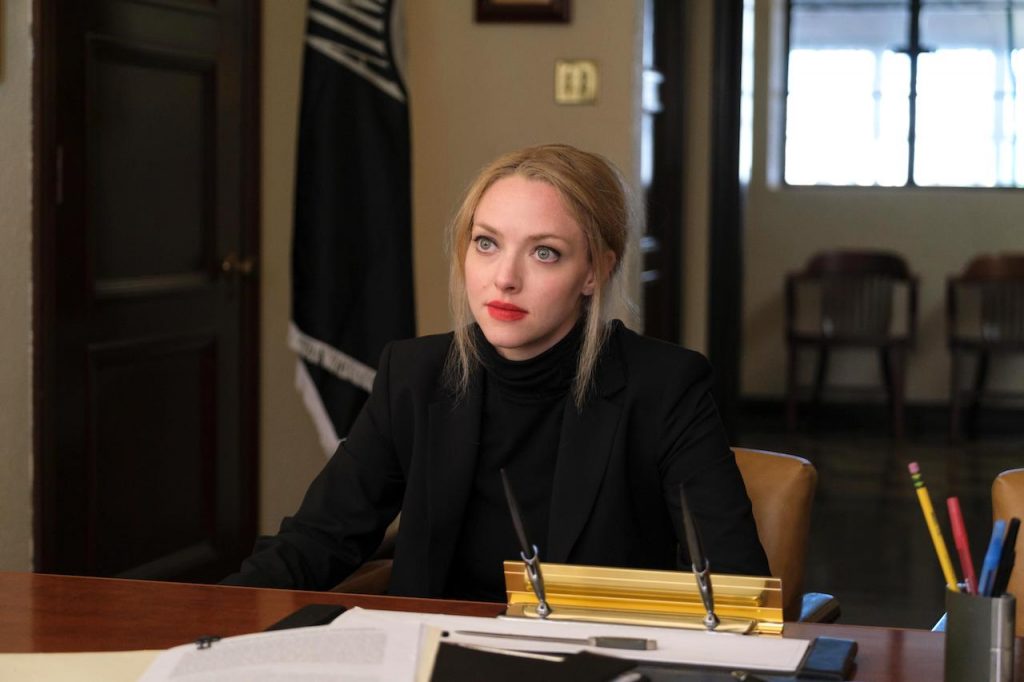- TV Writer & Playwright Sofya Levitsky-Weitz Talks “The Dropout” & “The Bear” (Part 1)
- TV Writer & Playwright Sofya Levitsky-Weitz Talks “The Dropout” & “The Bear” (Part 2)
“I started writing professionally as a playwright and that was my entry point to film and TV,” says Sofya Levity-Weitz (The Dropout) who works on the wildly successful TV show The Bear, starring Jeremy Allan White, Ebon Moss-Bachrach and Ayo Edebiri. “I also acted and directed in preschool and undergrad. Then I went to graduate school at Northwestern where it was a dual degree program for playwriting and screenwriting.”
As part of her studies, the writer also produced and acted in a bunch of short films. But playwriting was the springboard to her TV writing career, especially after she moved to New York. She used one of her plays called This Party Sucks as a writing sample to open doors into television.
Levity-Weitz got her break as a writer and on Gaslit and writer and story editor on The Dropout which chronicles the life of Theranos co-founder Liz Holmes. “Then I worked in a five-week mini room for The Bear before it was ordered to series. Then I worked on The Dropout before going back to The Bear for season one.” Prior to working on these shows, Sofya was hired as a writers’ assistant in two other writers’ rooms.

Sofya Levitsy-Weitz. Photo by Sammy Tunis
Sofya’s tenacious appetite to build industry relationships led her to cross paths with Michael Showalter, who directed the first four episodes of The Dropout. He hired Levitsky-Weitz to so some research for him for The Eyes Of Tammy Faye. “He brought me on later in that year when they went into production to help him revise the script and get it to a more exciting place,” she recalls.
Showrunner Elizabeth Meriwether, also scrambled for an assistant when The Dropout rapidly went into production “to do what I helped Michael Showalter with for certain films – help her with the scripts, incorporate notes, do drafts of the scripts, rewrites, first drafts, and helping her with her showrunner duties. It was an invented role where they hired me for ten weeks at story editor level because I had been a staff writer in two rooms already,” Sofya says of her career.
The Rise Of The Mini-Rooms
Sofya Levitsky-Weitz has worked in mini rooms of various durations with only three or four writers. “Gaslit ran for sixteen weeks, and the longest ran for twenty weeks.” Although these are relatively longer-running rooms, “the amount of time that writers are in a room is shrinking, the amount of people you have doing the work is shrinking, and yet the expectation is the same,” she laments. Shows still need to be written and shot at the highest quality.
“For The Bear, we have a particularly quick turnaround and short schedule. The first mini-room lasted five weeks. It was only three of us, not counting showrunners Chris Storer and Joanna Calo. We were building out the rest of season one and determining and building out a proposal for the studio, and dreaming about what the show could be.”
Five weeks isn’t long enough “to really let these stories breathe and find things that are unexpected and let everyone have a voice in the room. For season two, we got three additional writers and it was really wonderful to have those extra voices in the room and listen their perspectives, pitches and ideas. As much as a small room can feel intimate, and you might have more opportunities to speak as a writer, I have always valued additional perspectives, experience levels and backgrounds in a room. I think it only makes the storytelling better. Even if not every idea is used, but what I find is, very few ideas are actually thrown in the dustbin.”

Elizabeth Holmes (Amanda Seyfried). Photo by Beth Dubber/ Hulu
Gaslit, The Dropout, and The Bear are vastly different shows so Sofya, must tackle them each in a certain way when she comes onboard. “I’m most fascinated by emotional arcs and really complicated relationship dynamics in the characters.”
Character Relationship Dynamics
“I’m also always going to be interested in gender and telling stories about women. I think that Elizabeth Holmes is a fascinating character. I think I was really drawn to her extremely strange relationship with Sunny (Naveen Andrews). Building that out in a show was something that I did for Liz [Meriwether] and she was really excited about it. She didn’t ask me to do it, but I was going through the script, I was fascinated and asked her.”
Since the original scripts for The Dropout were written a year prior to shooting, “I was coming in with more of an outside eye and seeing the totality of the scripts and getting really specific about, if Sunny and Elizabeth are in this emotional place in episode two, where are they in episode six?”
“I’m tracking that and I ended up writing Liz this really long essay about where I thought they should be and she really responded to that. We both incorporated it into the eventual scripts as well as Holmes’ relationship with her mother and her relationship with the younger colleagues who end up whistleblowing.”
Liz Holmes admittedly is a difficult character to write and expect audiences to travel with her because she willingly amplified the Theranos fraud. “Liz is a highly specific character. Even if she wasn’t based on a real person, our task is to look at the real person and also make her creatively interesting on the page. The more specific you can make her, the more we’re gonna lean in, the more we’re gonna say, ‘This isn’t a character we’ve seen before, this isn’t a stereotype of a certain character.’ Liz Holmes is this very strange, weird, and esoteric person,” says Levitsky-Weitz.
Sofya Levitsky-Weitz is captivated by Holmes’ unfettered ambition. She was fully aware that her actions weren’t fraudulent, “but she was also following in the footsteps of all these men who came before her and were her contemporaries. And yet, she was crucified for doing essentially the same thing as them.” The writer tapped into the sexism and misogyny that surrounded the rhetoric around Liz Holmes. Sofya didn’t want to excuse Holmes, but rather, depict her as a product of a very specific work environment.
Levitsky-Weitz was more interested in fine-layering and finessing Holmes’ character to make The Dropout more than a story about an impressionable young woman being manipulated by an older man. Holmes’ intuitively knew the Theranos story wouldn’t end well, but that didn’t deter her from making her mark in the health tech sector.
[More: “Letting Your Writing Steep” A Conversation with ‘The Bear’ Showrunner Joanna Calo]
